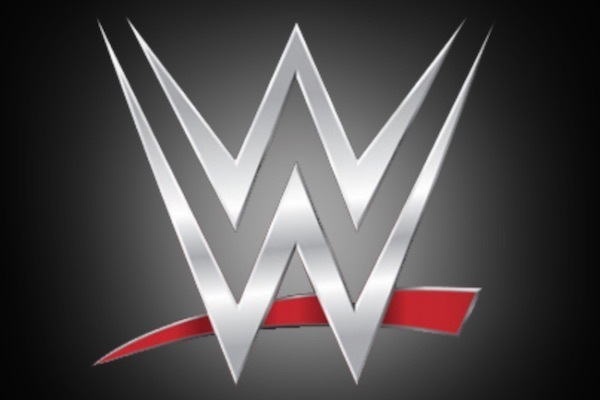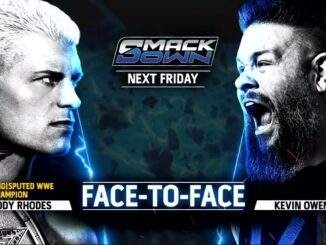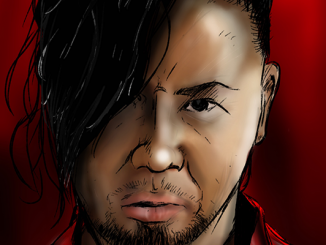
SPOTLIGHTED PODCAST ALERT (YOUR ARTICLE BEGINS A FEW INCHES DOWN)...
Week of May 30 WWE Concussion Lawsuit Updates
June 3 Update
To wrap up the week, attorneys for WWE and Chris Nowinski filed separate memos opposing the plaintiffs’s motion for Nowinski to be deposed in the ongoing concussion lawsuit.
The background is representatives for the plaintiffs, Vito LoGrasso and Evan Singleton, requested a deposition of concussion expert Chris Nowinski in May. The deposition was postponed after Nowinski’s legal representative refused to allow Nowinski to testify based on the argument that Nowinski’s testimony was irrelevant to the remaining legal claim against WWE.
The plaintiffs’s attorney, Konstantine Kyros, followed with a motion requesting the U.S. District Court of Connecticut to compel Nowinski to testify, believing his testimony was relevant to the remaining legal claim that WWE knew of and did not disclose the long-term effects of concussions on wrestlers.
– On Friday (June 3), WWE’s lead attorney Jerry McDevitt wrote a strongly-worded 12-page memo requesting the court dismiss Kyros’s request for Nowinski to be deposed.
McDevitt based his argument on believing the plaintiffs’s subpoena for Nowinski to testify was “invalid and unenforceable.” McDevitt added his belief that topics for Nowinski to be interviewed about “are irrelevant under this Court’s orders and can make no difference concerning the outcome of this case.”
McDevitt went on to dissect Kyros’s approach to the case, including believing the plaintiffs are not following the Court’s instructions on the remaining claim in the case.
“Plaintiffs also seek to depose Mr. Nowinski on topics that reflect a continued disregard for the Court’s orders regarding the scope of discovery in this case,” McDevitt argued. “The Court has held that this case is not about concussion prevention and that discovery merely reflecting a desire to limit concussions and prevent injury to WWE talent or specific incidences of head trauma during WWE activities are not relevant or proportional to the needs of this case.
“The topics on which Plaintiffs seek to depose Mr. Nowinski fall outside the clear limitations of discovery established by the Court and are irrelevant to the remaining fraud by omission claims of Singleton and LoGrasso.”
Because WWE is arguing that Nowinski does not need to be deposed, McDevitt went on to write that he believes the plaintiffs have not demonstrated the need for further investigation into the remaining claim of fraudulent nondisclosure about the long-term effect of concussions. Therefore, the discovery period should conclude on June 1 without a 14-day extension.
Overall, McDevitt said he believes his argument shows the plaintiffs’s counsel has shown “a disdain for the standing orders of this Court; for this reason alone, Plaintiffs’s motion should be denied.”
McDevitt’s memo included paragraphs that were blacked out in digital form. Also, the attached Exhibit A enhancing McDevitt’s argument was sealed because it contains business information about WWE that the company has not gone public with.
– Also on Friday, the legal representative for Chris Nowinski filed a memo claiming “there is no good cause to grant leave to the Plaintiffs” to file a motion to compel Nowinski to testify.
“Plaintffs’s subpoena is invalid, unenforceable, and would only lead to a fishing expedition beyond the scope of this Court’s discovery order. The Court should deny Plaintiffs’s motion,” argued an attorney for the Mintz Levin law firm.
Within the 7-page memo to the court, attorney Keith Carroll detailed why they believe the subpoena was improper, therefore disqualifying Nowinski from having to testify.
“Plaintiffs’s motion disingenuously suggests that Mr. Nowinski simply ignored a properly issued subpoena for a deposition scheduled on June 1, 2016. That is fiction. Plaintiffs well know that the subpoena issued by their counsel was facially invalid and unenforceable,” wrote Carroll.
The second argument is Nowinski’s legal representatives believe the Plaintiffs only wanted to interview Nowinski to obtain information about WWE outside of the scope of the remaining legal claim against WWE.
“Plaintiffs seek to obtain information about other pending or dismissed cases and to confront Mr. Nowinski with Plaintiffs’s concocted conflict of interest theory that is designed to create fodder for the press, but which has no bearing on the single surviving claim in this case,” wrote Carroll. Notably, the “fodder for the press” item included a footnote referring to PWTorch’s previous coverage of the case on June 1 when the Plaintiffs’s filed a motion to compel the court to have Nowinski testify.
Carroll continued: “Even if the subpoena were valid, which it is not, it would still impose an undue burden on Mr. Nowinski.” After attempting to deconstruct the Plaintiffs’s motion to compel, Carroll wrote, “Plaintiffs are grasping at straws and searching for information well beyond the Court-ordered scope of discovery.”
Carroll also attempted to dismiss Kyros’s claim that Nowinski has unique knowledge relevant to the outstanding legal claim that can only be obtained through his deposition. “Topics outlined by the Plaintiffs all relate to information that can be and should be obtained from the WWE,” Carroll wrote. “Plaintiffs fail to articulate how an outside third party like Mr. Nowinski would have any knowledge of internal WWE programs and protocols.”
“There is no good reason and no legal basis for Plaintiffs to depose Mr. Nowinski,” Carroll wrote before concluding that the Court should deny the Plaintiffs’s motion.
This sets the stage for next week’s events, which will likely include a response from Kyros and potentially a decision from Judge Vanessa Bryant on whether Nowinski should be deposed and/or the June 1 discovery deadline should be extended 14 days.
June 1 Update
June 1 was the deadline for discovery. However, Judge Vanessa L. Bryant of the U.S. District Court of Connecticut proposed a 14-day extension if the Plaintiffs can make a case that WWE has withheld information on the outstanding claim of whether the company had “knowledge of a link between wrestling activity and permanent degenerative neurological conditions.”
The latest point of contention between the Vito LoGrasso/Evan Singleton camp (plaintiffis) and WWE (defendants) is whether former WWE star Chris Nowinski should be deposed as part of the outstanding claim.
Nowinski, an expert in concussions and concussion research, was scheduled to be deposed on June 1. However, the Plaintiffs notified the court that Nowinski did not make his scheduled deposition appointment; his attorney argued that Nowinski’s testimony was irrelevant to the outstanding claim.
The LoGrasso/Singleton camp argued in their June 1 motion that Nowinski “has unique knowledge directly relevant to Plaintiff’s claims which can only be obtained through his deposition, notably knowledge regarding his direct involvement with WWE’s concussion research programs, the extent of WWE’s involvement in and knowledge of concussion research by the Concussion Legacy Foundation (an organization founded by Mr. Nowinski formerly known as the Sports Legacy Institute), and WWE’s implementation of concussion prevent protocols.”
The motion went on to question whether Nowinski refused to testify because WWE donated $1.2 million to the Concussion Legacy Foundation for concussion research. Attorneys for LoGrasso/Singleton argued that Nowinski has “knowledge directly relevant to whether WWE has knowledge of and failed to disclose a link between wrestling activity and permanent degenerative neurological conditions.”
As a result of Nowinski’s attorney refusing to allow his client to testify, the LoGrasso/Singleton camp is claiming Nowinski is “in contempt of Court and must be compelled to appear for deposition.”
The attorneys motioned for the court to order Nowinski to comply with the deposition request. They also asked for a leave to depose Nowinski in the Boston area, where he resides, under the umbrella of the District of Massachusetts within the 14-day extension.
In an email, Nowinski’s camp argued that his testimony does not fall within the outstanding claim of whether WWE had knowledge of the long-term risks of their wrestling practices.
Nowinski’s representative, Brian P. Dunphy of the Mintz Levin law firm, emailed and mailed a three-page later on May 27 to the plaintiffs’s lead attorney, Konstantine Kyros, declaring that Nowinski would not be deposed on the grounds that Nowinski was “under no obligation to appear because the subpoena is facially invalid and unenforceable.”
In summary, the reasons were because Dunphy felt the boundaries and questions were not clear, there was no clear link between Nowinski’s potential testimony and the outstanding claim agaisnt WWE, and he felt that Kyros was on a “fishing expedition” for information about WWE to build his case.
One paragraph of Dunphy’s email reads: “Attorney Kyros asserted that, since Mr. Nowinski and the Concussion Legacy Foundation have been long involved in the public discussion around the risks of concussions, Mr. Nowinski may have relevant information. Although Mr. Nowinski and the CLF are at the forefront of advocacy and research about the effects of concussions, Mr. Nowinski need not sit for a deposition simply to answer boundless, undefined questions about publicly available information regarding his work, and the CLF’s work, spanning nearly nine years.”
After receiving the reply on May 27 and after Nowinski did not appear at the deposition on June 1, attorneys for LoGrasso/Singleton petitioned the court to compel Nowinski to testify as part of the 14-day window extending the discovery period.
Kyros wrote in the motion that he believes he satisfied attorney Dunphy’s concerns about the scope of the inquiry. “I attempted to explain the various topics on which I believed Mr. Nowinski is knowledgable. These topics include WWE’s involvement with Mr. Nowinski’s organization, the Concussion Legacy Foundation, and other concussion research programs; Mr. Nowinski’s direct involvement in WWE’s implementation of concussion prevention protocols and his presentation of information to WWE wrestlers directly related to CTE; and Mr. Nowinski’s unique perspective as a former WWE wrestler who was forced to retire after suffering repeated head injures. Again, Mr. Dunphy was unsatisfied with my representations,” Kyros wrote.
The filing included a break down of the timeline of events:
- May 10: Attorneys for LoGrasso/Singleton served WWE with a notice of deposition related to Nowinski.
- May 16: Nowinski was served with a notice of deposition.
- May 24: Nowinski’s attorney, Brian Dunphy, spoke with a legal representative for the plaintiffs, Eric Mirabella, to address the subpoena.
- May 25: Nowinski’s attorney, Dunphy, spoke with the Plaintiffs’s chief legal representative, Konstantine Kyros. There was no resolution.
- May 27: Dunphy emailed and mailed a letter refusing to allow Nowinski to be subpoenaed, claiming Nowinski is “under no obligation to appear because the subpoena is “facially invalid and unenforceable.”
- May 31: Kyros notified WWE on the evening of May 31 that Nowinski would not be providing testimony as scheduled and the deposition would not go forward.
- June 1: Nowinski was scheduled to be deposed at the Mirabella Law office in Boston. Nowinski did not appear.
- June 1: Kyros filed a motion asking the Court to compel Nowinski to testify.
May 31 Update
After a weekend and holiday to review a full week of back-and-forth between WWE’s attorneys and the attorneys for Vito LoGrasso and Evan Singleton, judge Vanessa L. Bryant issued a four-paragraph order Tuesday in the U.S. District Court of Connecticut regarding aspects of the concussion litigation.
Judge Bryant granted one of the motions set for by the LoGrasso/Singleton camp (plaintiffs) and denied other motions. Included was Judge Bryant ordering that WWE (defendant) comply with a request to provide documentation in a specific area.
Judge Bryant said WWE is “under an obligation to disclose such documents” that pertains to whether WWE had “knowledge of a link between wrestling activity and permanent degenerative neurological conditions.”
Judge Bryant noted in her order: “The sole remaining claim (from the Plaintiffs) concerns an allegation of fraudulent non-disclosure of knowledge of a link between wrestling activity and permanent degenerative neurological conditions.
“To the extent there are documents within the categories identified by Plaintiffs Motion to Compel, including documents related to the use of helmets, the elimination of wrestling moves, the implementation of the Wellness program, or the hiring of specific personnel and the adoption of specific protocol, or the incidences of concussions among WWE talent which reflect a specific knowledge of OR an appreciable risk of a link between wrestling activity and permanent degenerative neurological conditions, then WWE is under an obligation to disclose such documents,” Judge Bryant wrote. (The above text was bolded in the ruling.)
However, Judge Bryant denied the Plaintiff’s requests for additional cooperation from WWE pertaining to “concussion prevention.” She set the parameters that LoGrasso/Singleton cannot request documents that relate to common injuries as part of the job.
“To the extent information within the identified categories merely reflects a general desire to limit or prevent head injury to WWE talent, or the occurrence of head injuries among WWE talent, such information is irrelevant to the claim at hand and is not discoverable,” she ruled.
Judge Bryant also denied two motions to obtain documents prior to 2005 and the medical records of Big Vito and Singleton.
“Plaintiffs have not presented any factual predicate whatsoever entitling them to discover documents or information dated prior to the year 2005 and absent such a factual predicate Plaintiffs motion to compel is denied on that issue,” Judge Bryant ruled.
“Lastly, Plaintiffs demand for WWE to disclose Plaintiffs own medical files is denied in as much as it seeks production of information within Plaintiffs control and access and permissibly gathered by WWE at Defendants own expense.”
The deadline for discovery was scheduled for Wednesday (June 1), which is also when WWE personnel were scheduled to be disposed. Judge Bryant noted at the end of the order that both parties have two weeks to provide additional documentation showing they have complied with the court order.
“The Court will permit the parties to supplement their discovery responses no later than fourteen days after the discovery deadline to provide the information they have each been compelled to disclose,” Judge Bryant closed the ruling.




Leave a Reply
You must be logged in to post a comment.